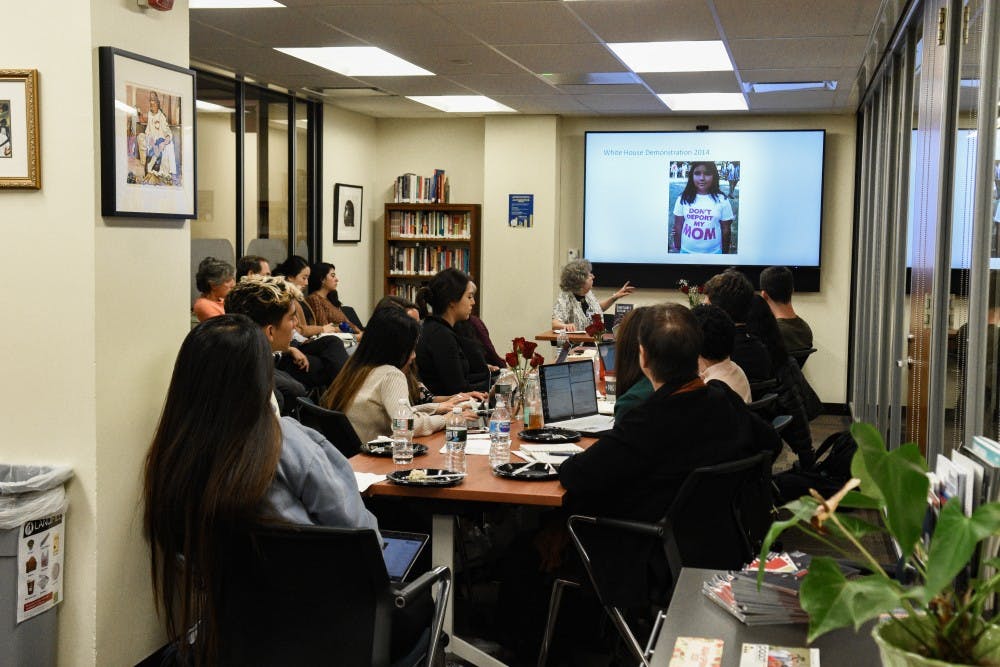
Linda Rabben spoke about several specific stories from her book “Sanctuary and Asylum: A Social Political History" during her talk on Tuesday.
Credit: Annie LuoLinda Rabben, 1974 College graduate, spoke at Penn about her new book on sanctuary and asylum and shared stories of migrants she met at the United States-Mexico border on Tuesday evening.
The event took the form of a conversation between Rabben and Penn Law School and School of Social Policy and Practice professor Fernando Chang-Muy. It was the first of the Latin American and Latino Studies External Speaker series, in which Penn professors can apply for grants to host scholars whose work intersects with Latin America and Latinx studies.
Rabben's book, titled “Sanctuary and Asylum: A Social Political History,” traces the history of sanctuary and analyzes asylum policies in the United States and Europe. She is a professor of anthropology at the University of Maryland and an activist who has worked on immigration and refugee issues with human rights organizations such as Amnesty International.
Rabben said she once translated for a Brazilian asylum-seeker whose son contracted a high fever during his stay in one of the detention centers. She recalled how she saw border patrol guards emptying water gallons left for those crossing the desert from Mexico to Arizona.
“It seems to me that the de facto policy of the United States government is 'if people are not going to come in through ports of entry, where they have very little chance of getting asylum, well, they can just die in the desert,'” she said.
Rabben said grassroots institutions help fill in the gaps that current laws overlook or ignore, and highlighted the New Sanctuary Movement of Philadelphia, which advocates for immigrant justice and extends help to undocumented immigrants who have already lived in the United States for several years.
College junior Caitlin Muldowney, who attended the event, said she was struck by Rabben's story about undocumented immigrants who would ask their neighbors to fill out foster parent applications in case they were deported.
“I think looking at how during the Holocaust, families would take Jewish children to protect them, and how we’re repeating that today, it’s kind of like how we always learn history so we don’t repeat our same mistakes,” Muldowney said. “But we are.”
During the following Q&A session, Chang-Muy said Rabben’s research adds another dimension to studying policy and law, as her stories draw the conversation back to the people affected by these policies.
“Our laws have not always expressed a spirit of welcome. Sometimes they do, sometimes they don’t,” Rabben said. “But the institution of sanctuary and the strong motivation that ordinary people of goodwill have to give refuge to strangers, I believe, will survive as long as we do. I think it’s in our DNA to help people that are in trouble without asking too many questions.”
The Daily Pennsylvanian is an independent, student-run newspaper. Please consider making a donation to support the coverage that shapes the University. Your generosity ensures a future of strong journalism at Penn.
Donate



